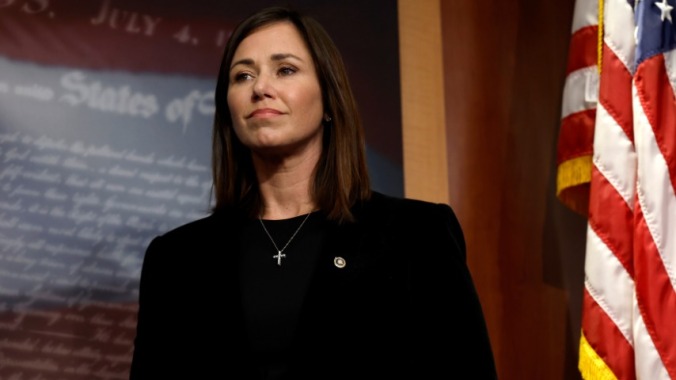Katie Britt, Who’s Voted Against Protecting IVF, Says Democrats Just Use It As a ‘Scare Tactic’
Britt and Sen. Ted Cruz have introduced their own bill to supposedly protect IVF, but fertility groups say it could actually do the opposite.
Photo: Getty Images Politics IVF
In February, fertility clinics across Alabama shuttered IVF services after the state Supreme Court ruled that frozen embryos are “extrauterine children” whose routine destruction can qualify for wrongful death lawsuits. While Alabama lawmakers rushed through a bill to explicitly protect IVF, restoring access to the treatment, the ruling made clear that right-wing concepts like fetal personhood inherently jeopardize IVF. And despite the fact that most politicians publicly claim to support IVF, Senate Republicans have already blocked legislation to codify federal protections for it several times this year.
They seem to really dislike being called out for these conflicting positions, with Sen. Katie Britt (R-Ala.) on Sunday saying that when Democrats discuss protecting IVF, it’s merely a “scare tactic.”
Speaking to Shannon Bream on Fox News, Britt referenced a letter she wrote with Sen. Ted Cruz (R-Texas), which performatively affirmed support for IVF access and received signatures from the entire Senate Republican caucus. “The truth is, Democrats continue to use this issue as a scare tactic, because IVF is legal and accessible in all 50 states. And President Trump has made it perfectly clear that he’ll continue to make sure that that’s the case,” Britt said.
-

-

-

-

-

-

-

-

-

-

-

-

-

-

-

-

-

-

-

-

-

-

-

-

-

-

-

-

-

-

-

-

-

-

-

-

-

-

-

-








































